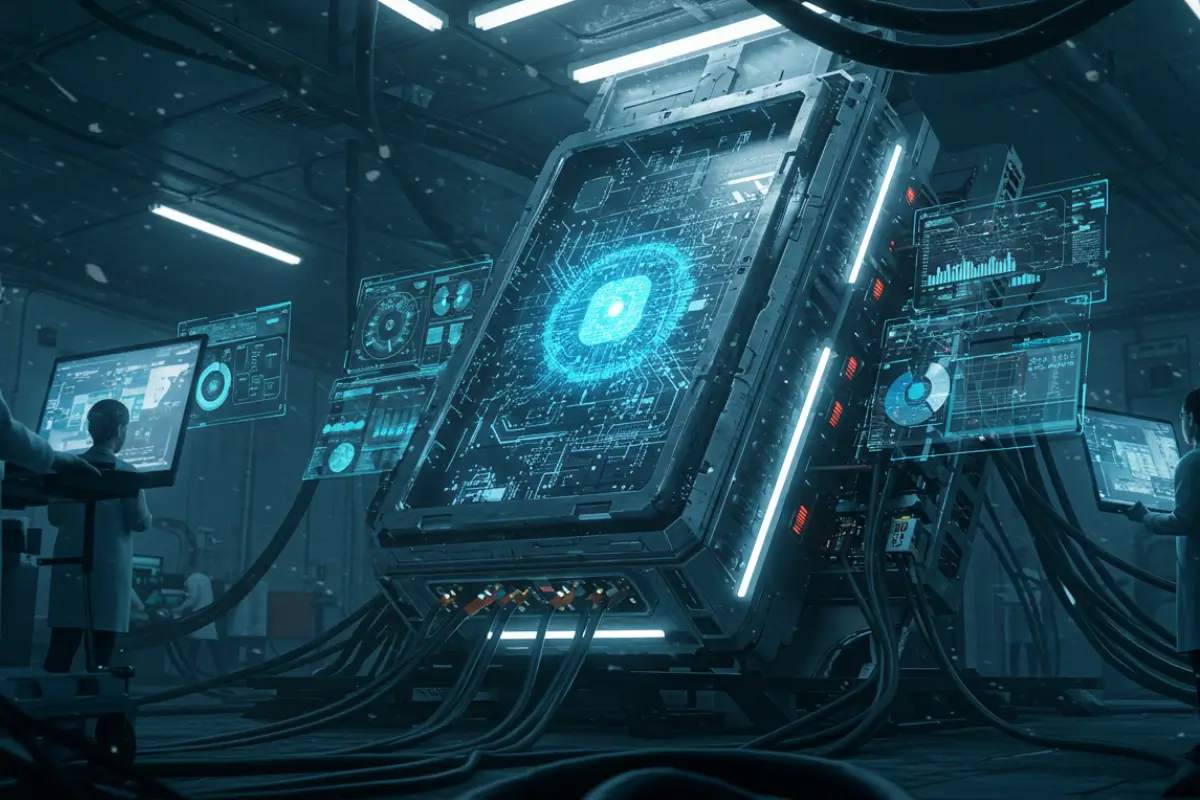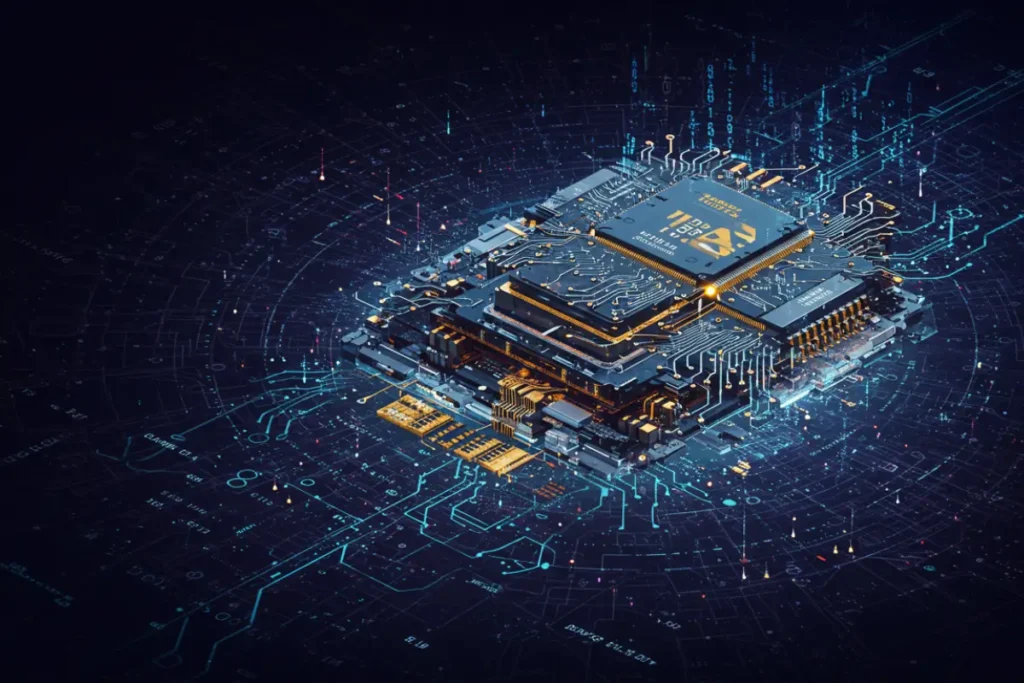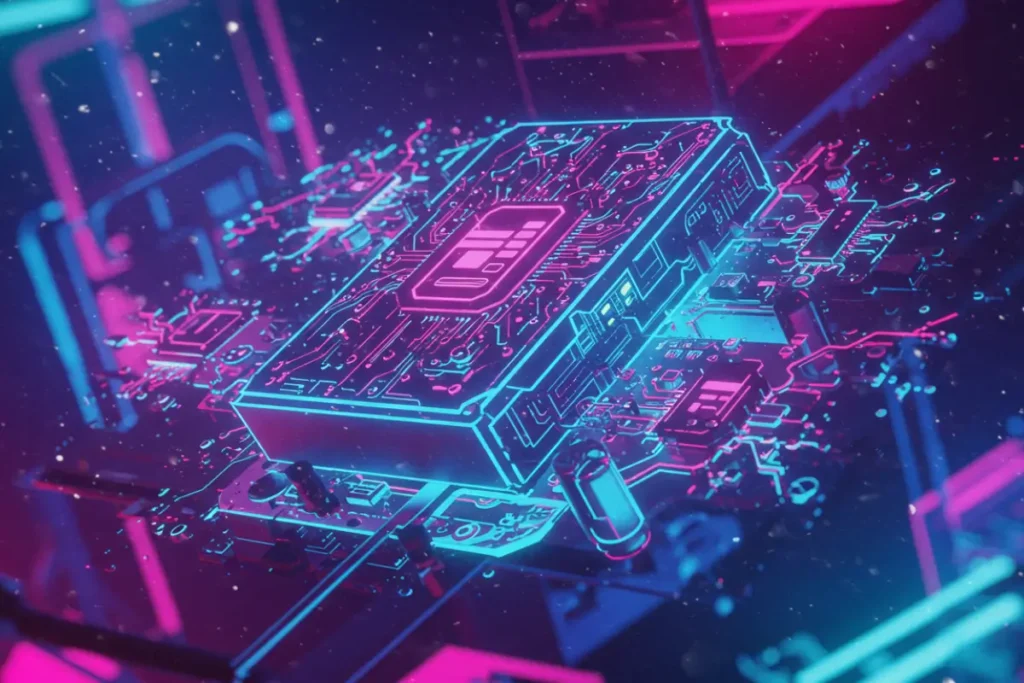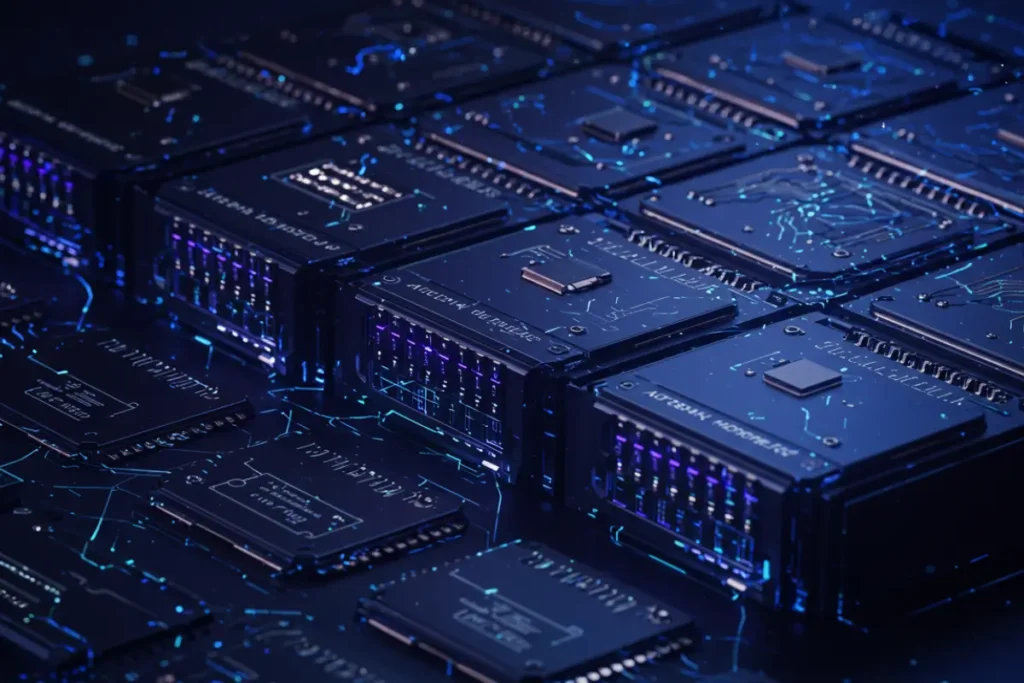The Rise of AI-Powered Supercomputers
- March 16, 2025
- 0
Hey guys, how are you? Well, I’ve been wanting to talk about this topic for a long time, about something I’ve been wanting to see for a long
Hey guys, how are you? Well, I’ve been wanting to talk about this topic for a long time, about something I’ve been wanting to see for a long

Hey guys, how are you? Well, I’ve been wanting to talk about this topic for a long time, about something I’ve been wanting to see for a long time.
We’re talking about machines so powerful they can simulate the entire universe, predict the most complex climate changes, and even help AI reach Artificial General Intelligence (AGI).
This is not science fiction; this is happening right now.

AI-powered supercomputers are not just your average high-performance machines. These are massive, highly specialized computing beasts that combine the best of artificial intelligence, machine learning, and deep neural networks to process insane amounts of data at lightning speed.
Unlike traditional supercomputers, which rely on brute force calculations, these AI-driven systems are designed to think, learn, and optimize themselves over time.

AI supercomputers are advancing at an insane pace. Here are some of the most groundbreaking AI supercomputers of all time:

Supercomputers powered by AI are helping scientists decode the mysteries of the universe.
They simulate complex processes like nuclear fusion, planetary formations, and genetic engineering. These insights could lead to faster medical discoveries and better environmental solutions.
NASA and private space companies like SpaceX are already using AI supercomputers to calculate trajectories, analyze space anomalies, and even help autonomous space probes make decisions without human intervention.
Imagine AI making first contact with an alien species before humans even get there! 🌌
Supercomputers are being used to predict extreme weather patterns, simulate climate change scenarios, and even propose solutions to mitigate global warming.
This is crucial for shaping the future of our planet.
With cyber threats evolving, AI-powered supercomputers are now being deployed to predict, detect, and neutralize cyberattacks in real time.
This is a game changer for governments, businesses, and personal security.

We are just scratching the surface of what AI supercomputers can do. In the next 5 to 10 years, expect to see:
➡️ What is the difference between AI-powered supercomputers and regular supercomputers?
AI-powered supercomputers learn and optimize themselves using deep learning, whereas traditional supercomputers rely on pure processing power to crunch numbers.
➡️ Can AI-powered supercomputers achieve AGI (Artificial General Intelligence)?
Possibly! Many experts believe that with enough data and computing power, AI could evolve into AGI within the next few decades.
➡️ Are AI supercomputers dangerous?
While AI supercomputers have immense power, their risks depend on how they are programmed and used. Ethical AI development is crucial to prevent unintended consequences.
➡️ Can AI supercomputers replace human jobs?
Yes and no. While AI supercomputers will automate many tasks, they will also create new industries and job opportunities.
AI-powered supercomputers are reshaping our world in ways we never imagined. From scientific discoveries to space exploration, the potential is limitless.
Overall, this is an innovation that I’m really excited to see and test. I think the big problem will be the prices and also the bugs when this tool is launched. I believe there will be a lot of them, but it’s already a good first step.
I believe that in the near future, AI-driven supercomputers will be essential in every aspect of our lives.
🔗 If you’re interested in AI and technology, check out this article on Futuristic Intellect!
💬 What are your thoughts on AI supercomputers? Do you think they could become self-aware? Drop a comment below! 👇👇